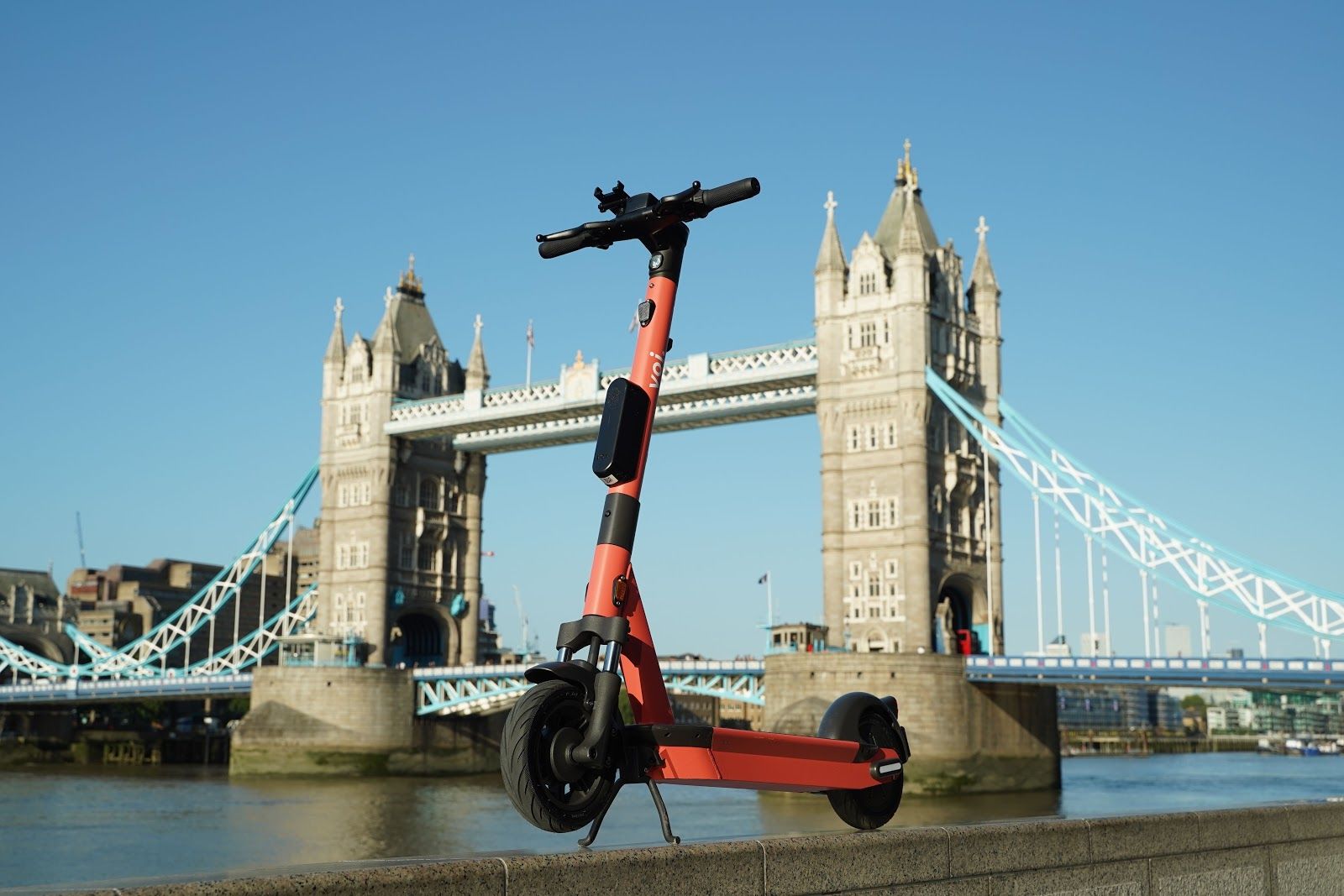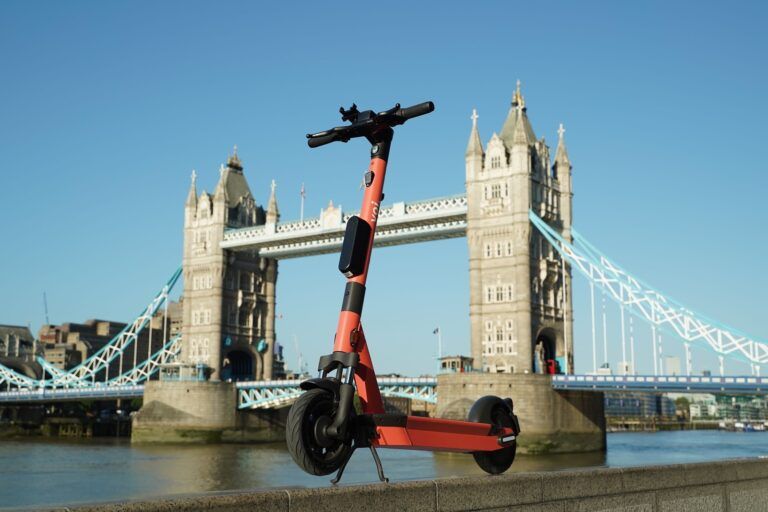The UK’s Department for Transport (DfT) has published the nation’s first ever legal framework for e-scooters, which will enable trials of these previously banned vehicles to take place from Saturday (4 July).
The micromobility pilots have been brought forward from 2021 as councils try to discourage people from resorting to their cars over fears around coronavirus infection, which would undermine years of modal shift to public transport in cities and urban areas.
The framework includes details on how rental schemes will operate in practice, stipulating that vehicles will be subject to a 15mph speed restriction and will be allowed on roads and in cycle lanes, but not in pedestrianised areas. Only those with a full or provisional driving licence will be able to use e-scooters, which will nevertheless be exempt from vehicle registration but require insurance. Though helmet use will be encouraged, it will not be legally required.
Use of private e-scooters will still be against the law in public places in the UK, with anyone wanting to try one out on the roads being required to sign up to one of the pilot schemes. E-scooters have always been illegal in public in the UK, due to a 19th century law that prohibits driving any kind of motorised vehicle without insurance, and private insurance for these vehicles not being available.
Currently 60% of all car trips here are between 1 and 5km (0.6 – 3 miles) making them very suitable for e-scooters. Switching from car to e-scooter for short journeys would help tackle the world’s climate change crisis, as well as reducing congestion and pollution from cars on UK streets. In Finland, when e-scooters were introduced earlier this year, 41% of respondents to a survey said they had taken a scooter instead of a taxi ride or private car. Almost one in five commuters said they had used an e-scooter for a business trip.
The UK government last month fast-tracked plans for e-scooter pilot schemes across the country as part of its ‘green restart’ of local transport, designed to relieve the pressure on public transport where capacity has been cut radically due to social distancing rules.

Swedish startup Voi, Europe’s fastest growing e-scooter company with four million registered users, welcomed the publication of framework legislation for e-scooter pilots and urged local authorities not to miss the opportunity to give their residents new transport options. The e-scooter operator estimates it could facilitate 100,000 rides a day across the UK, by the end of the year, and believes that a fifth of rides could replace cars on jammed UK streets as it embarks on its mission to shape cities for people in the UK.
“Cities urgently need to give people more transport options to help them get around, as traffic is rapidly returning to UK streets. Voi is delighted that the UK now has legislation in place because not only are e-scooters better for the environment but they can also help people start to resume their normal lives,” says Fredrik Hjelm, chief executive of Voi. “We acknowledge that it’s a huge task for councils and authorities to get the pilots up and running by the end of August, not least with all of the other challenges they face right now.”
More than 50 councils and regional authorities are working to put tenders in place to select e-scooter operators but they must start the pilots, which can run for 12 months, before the end of August. Cities including Liverpool, West Midlands (including Birmingham, Coventry, Wolverhampton and Dudley), Cambridge and Peterborough, Milton Keynes and Southampton were amongst those to express interest in running a pilot. Voi is working closely with cities and boroughs in the UK and hopes to be able to reveal pilots within weeks in key cities including London and the north.





